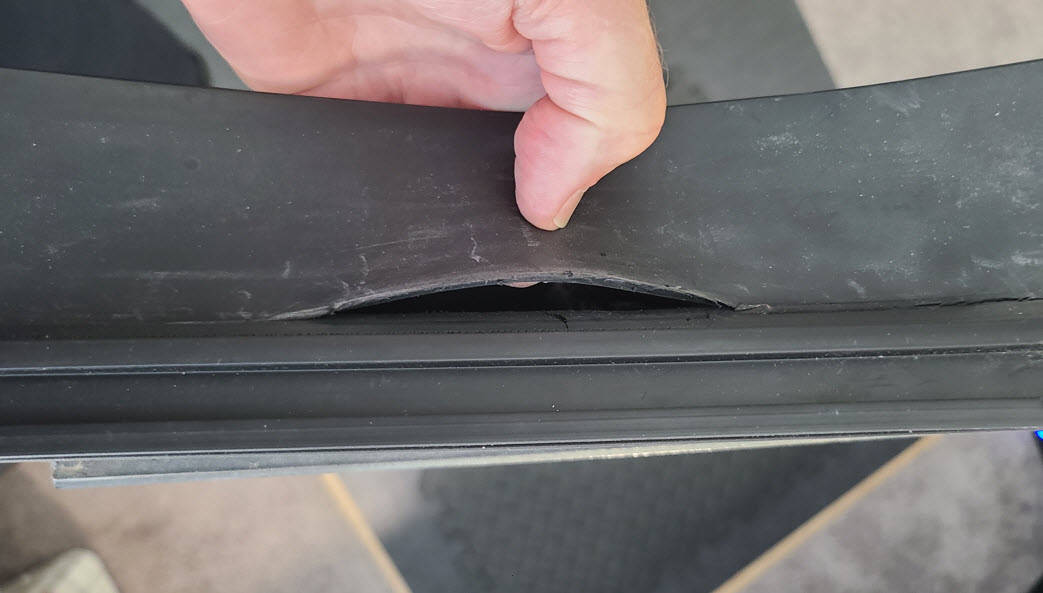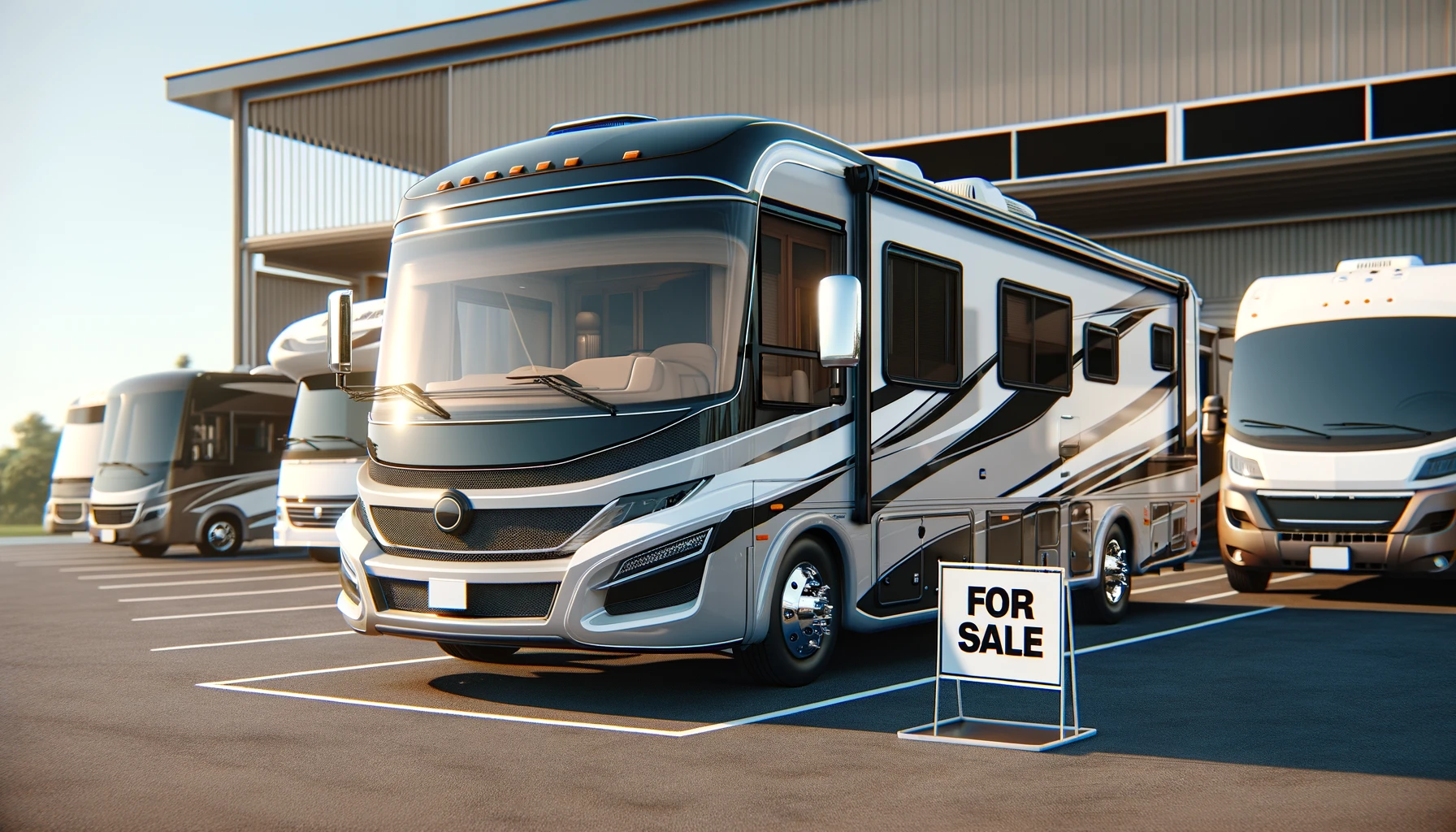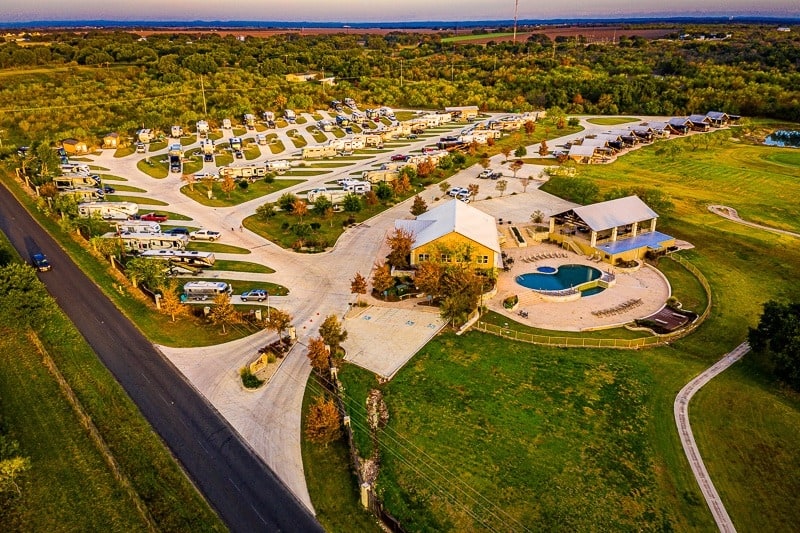Everyone has an ideal RV model in their minds that they want to buy, which is different from others. RV models differ as per the number of passengers that will be traveling.
Living in a crisis has taught us one concrete thing – life is short. We have seen many lives go away in this past year. So, we cannot wait to fulfill our dreams, right? Some people want to spend time with their loved ones while some want to party. And, there come the peculiar ones who wish to travel.

The travelers’ ideal way of traveling is by road, and the vehicle that is compatible with this situation is the recreational vehicle. Recreational vehicles are the only motor vehicles that can serve you as a means of transport and living quarters as well.
Also, knowing their pros and cons would help you to choose the best one. So, let us look at the seven popular types of RVs and their pros and cons.
The Well-Known Types of RVs
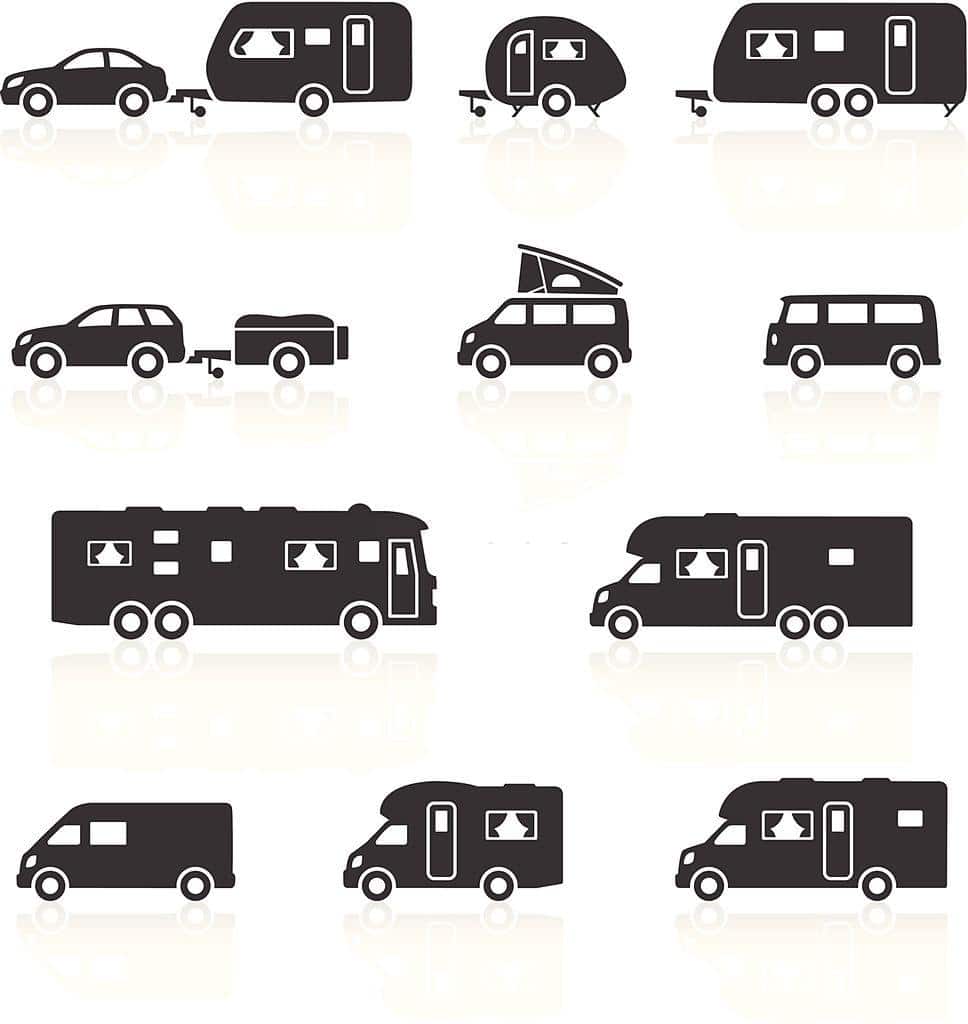
There are five major class types of RV. These fives are classified under two categories – drivable and towable.
The Class A, Class B, and Class C RVs come under the drivable RVs. Travel Trailers, Fifth Wheels, Folding and Tent Trailers, and Toy Hauler come under the towable RVs.
Drivable RVs
A drivable RV or motorhome is a big, self-drivable recreational vehicle. It is a self-powered RV that has its own engines and driving chassis. This RV is usually easier to use, self-contained, has enough rooms for the passengers, and can be easily set up at the campsites.
1. Class A

Class A RVs are the biggest and luxurious RVs available in the market. They are highly expensive and feature convertible types and purpose-built types. A diesel engine or gasoline engine power these RVs. Their length can vary from 26’ to 45’ with a standard length around 33’.
Pros
- It has more storage and living space than any other RVs available.
- You can even tow the vehicle or the trailer behind it.
- If you have one big family, this is your best option.
- These RVs usually have a big holding tank for any kind of water – fresh, gray, and black.
- It gives you a sizable scenic view of the road with high-up seats.
- You can have any amenities you need depending on the model you choose: living room, kitchen, bathroom, and washer area.
Cons
- It can be more threatening to drive.
- Sometimes, you don’t want your transport to be your home.
- You cannot go for a day trip without towing an individual vehicle.
- Pretty expensive to buy, fill up fuel, maintain, repair, and insure.
- It would not be easy to heat up or cool down space with the larger windshield area present.
- Class A RV will not fit in every place and road.
2. Class B

It is often known as the camper van. This RV is built on a standard size with a raised roof to have more space and is fuelled by diesel or gasoline. The length of the RV ranges from 17’ to 19’.
Pros
- Driving these RVs is like driving a van.
- They can fit easily in any spot or road.
- It gives higher gas mileage than the others.
- You can simply set up a campsite.
- You need less money to buy, fuel, and maintain.
- It is a suitable one for a day trip.
Cons
- It is a convenient vehicle for single travelers only.
- There is less interior living space and fewer amenities available.
- The RV provides a smaller area for storage and cargo.
- The price per square feet is higher.
3. Class C
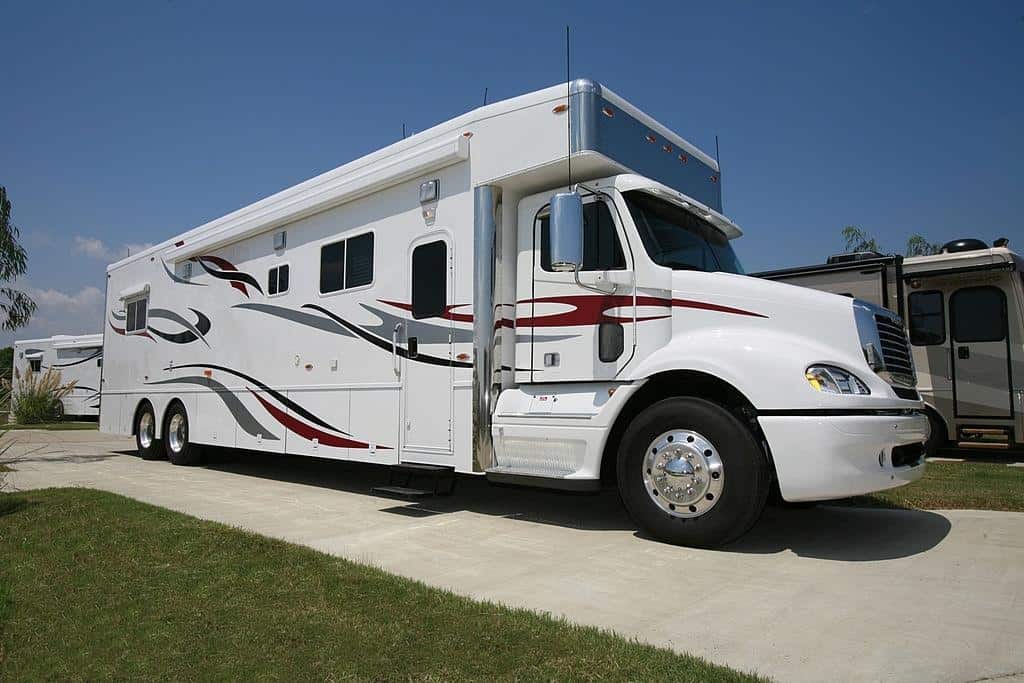
Class C RVs are mid-sized vans ranging from 20’ to 33’. They are built upon the top of the van chassis. These RVs are created for people who want to travel with a limited budget. The fuel, maintenance, and insurance costs are slightly better than Class A.
Pros
- These RVs are large enough to accommodate a large family.
- They also feature a cab-over area that can be used as a sleeping area and for storage or entertainment.
- One can purchase a Class C RV at a lesser cost than a Class A RV.
- It is also self-contained, easier to heat up or cool down due to its smaller windshield.
Cons
- Driving this RV can be challenging.
- The RV may lack some luxurious amenities.
- Some of the models are liable to leakage of water in the cab-over area because of the seams and curves.
Towable RVs
Towable RVs are the alternatives to motorhomes. They are just vans with trailers in the tow. They are cheap, more reliable, and provide the accessibility of detachable vehicles. There are various kinds of RVs in this category. We will be seeing the major types of it.
1. Travel Trailers
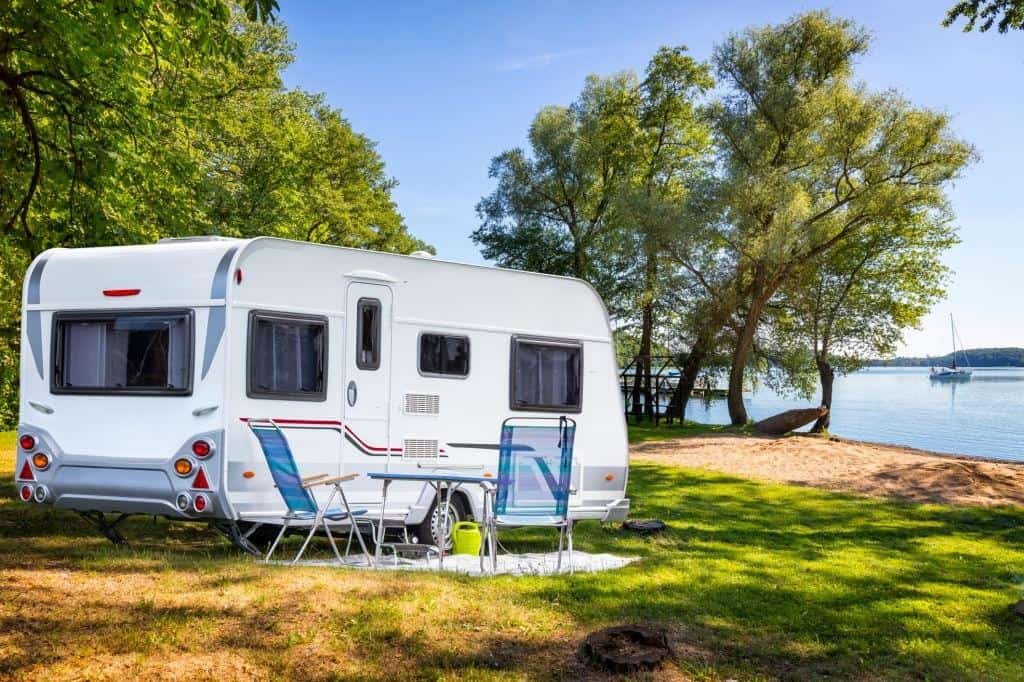
These are the big portable containers featuring a living area and all the amenities of the house. They are designed with a standard frame. Some RVs have water supplies, bathrooms, a kitchen, and a small refrigerator. Each model’s size will be different from the others.
Pros
- It can be towed with different types of vehicles.
- You can use the towing vehicle daily without the trailer.
- It is cheaper than a full-sized motorhome.
Cons
- You may find it challenging to drive in reverse.
- It is also challenging to move the RV in a crowded place.
- The driver must always be aware of the trailer towed behind.
2. Fifth Wheels
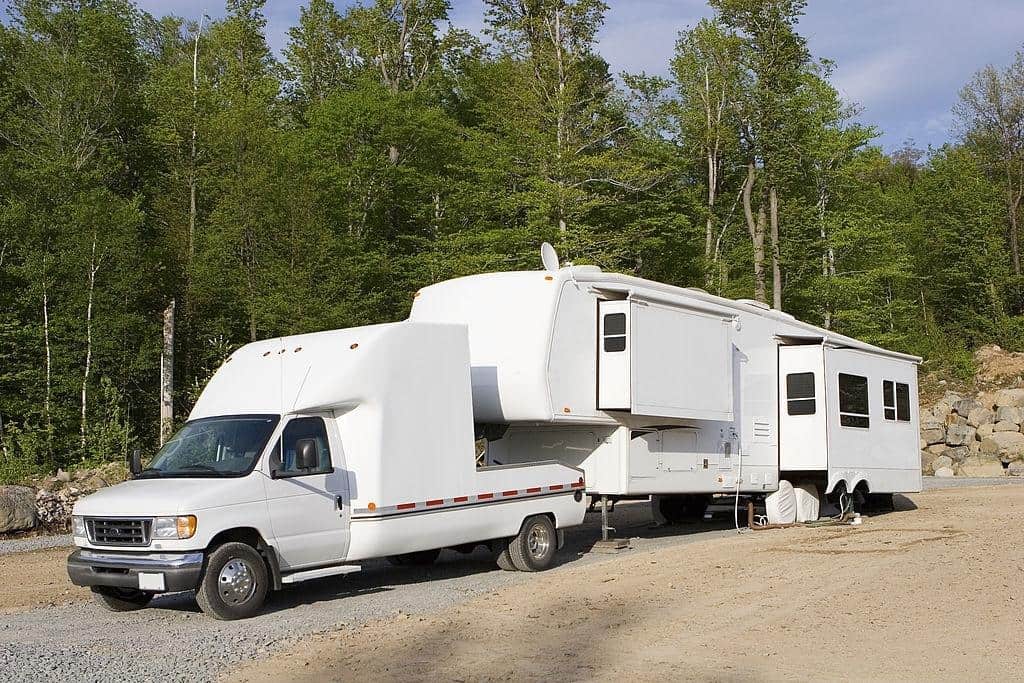
The fifth-wheel trailer is the largest towable RV among the others. It includes a gooseneck connector that joins with the tow vehicle. The vehicle requires a heavy-duty truck to move the trailer. The length ranges from 30’ to 40’.
Pros
- It gives a stable domain due to the use of a gooseneck connection.
- It has more storage spaces.
- There is no need to maintain the engine.
- It can accommodate multiple bathrooms and beds.
Cons
- Only limited types of towing vehicles can be used.
- Challenging to move into a crowded campsite.
- Highly expensive to maintain as compared to Travel trailers.
3. Pop-up Trailers
These folding tent trailers, aka pop-up campers, are the smallest towable RVs. They feature compartments that can be collapsed. It makes them easy to store in a small space. The materials used to build them are composite walls and durable tent canvas.
Pros
- This RV is an excellent choice for camping.
- It has less weight and thus easy to move.
- You can use a wide variety of towing vehicles.
- It is cheap to buy and maintain.
Cons
- There is only limited interior space.
- It has no storage or cargo space.
- Prolonged exposure to the weather can affect it.
4. Toy Hauler
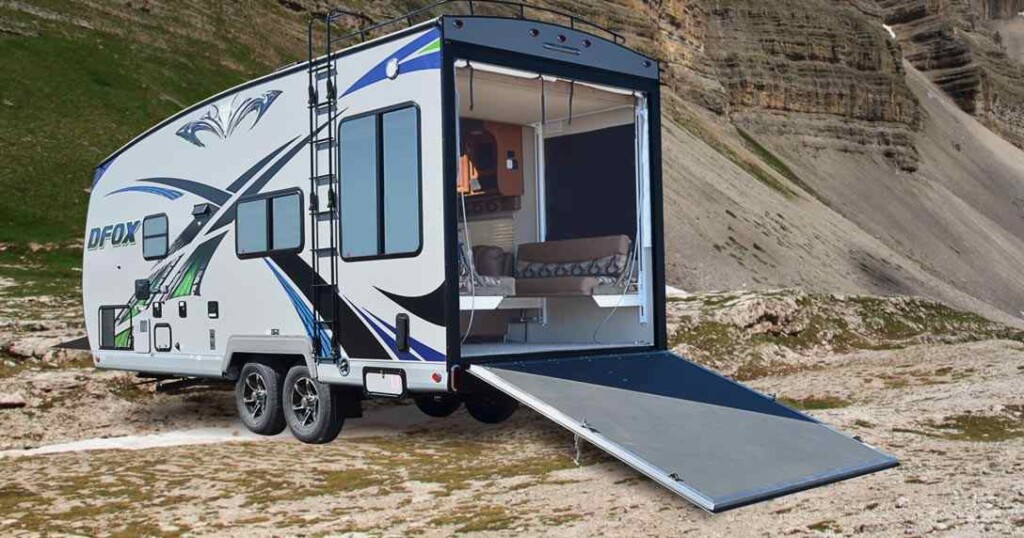
This is a combination of Travel Trailers and Sport Utility Trailers. It is used to store sport vehicles and features a folding wall. It is pretty famous among those who want to bring their bikes, snowmobiles, or ATVs with them.
Pros
- It has a dual purpose.
- It can give space for all the necessary amenities.
Cons
- It has less interior space for the owner to use.
- You need a heavy-duty vehicle that can carry the weight of the toy hauler and the heavy objects in it. The cost you spend in buying a heavy-duty truck is more than that of a regular truck.
Some would be traveling with their family, while some would travel alone. According to such requirements, your list of RV options will get short, and you will get a clearer idea of what you actually need.
Furthermore, getting to know about the advantages and disadvantages of the RVs will help you shorten the list even more. This article will help you get a precise idea about different RV types and which one will suit your requirements the best.
RV Types Summary
In addition to knowing the pros and cons of each RV type you also need to know RV prices. Both of these will help you make a better buying decision. We put together 40 examples of prices in 8 RV types in this article titled: RV Prices with 40 Examples.

